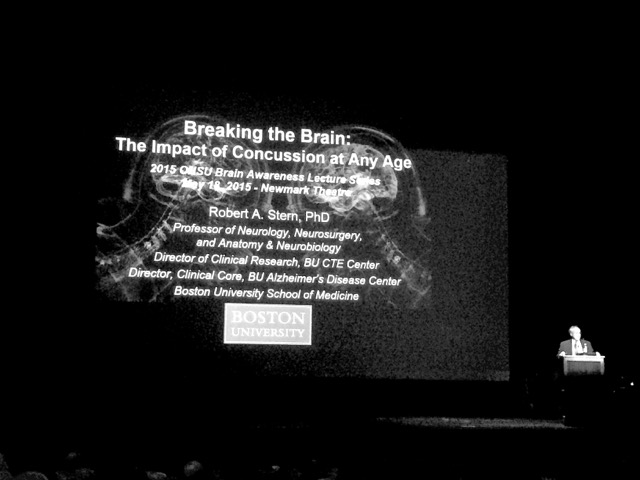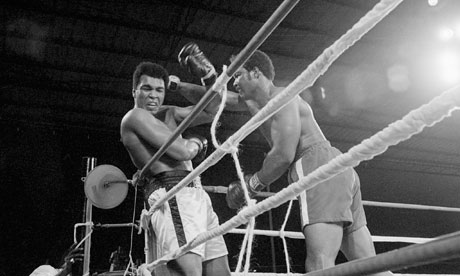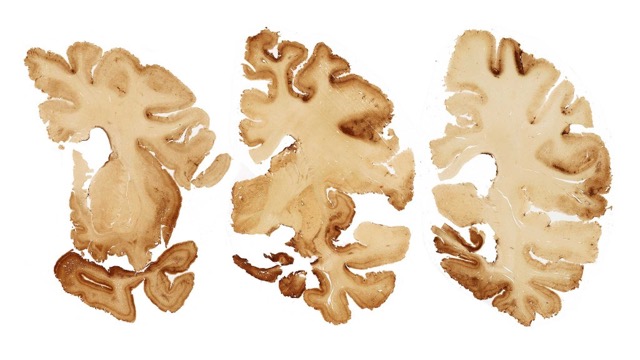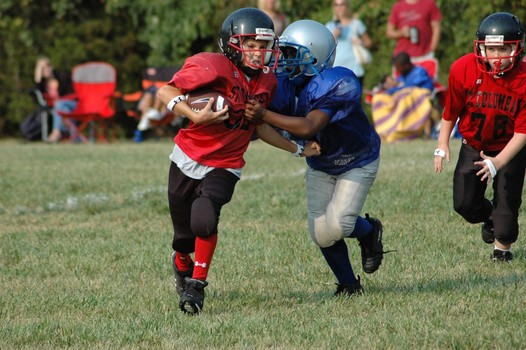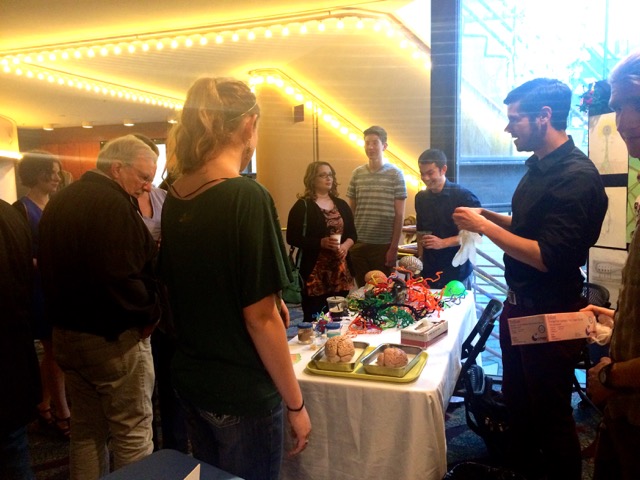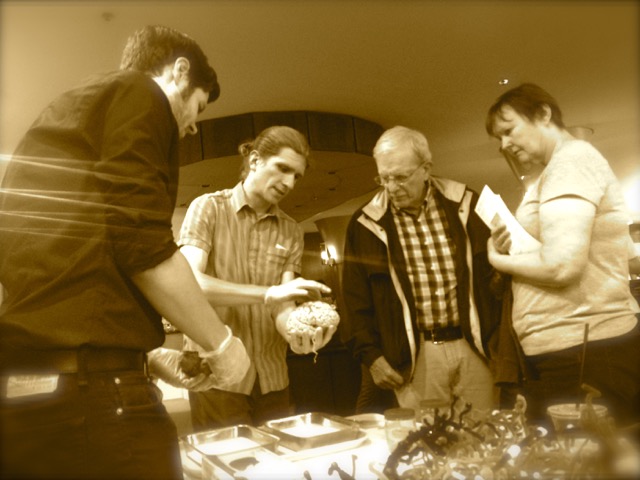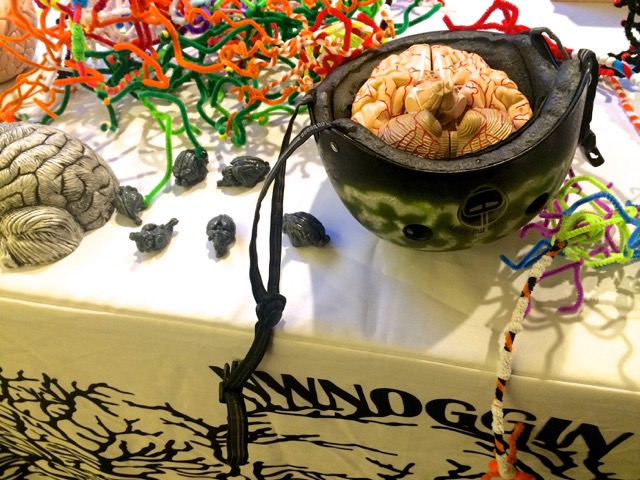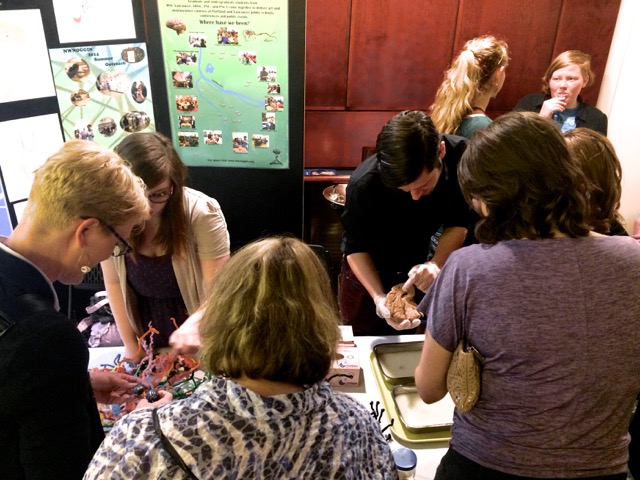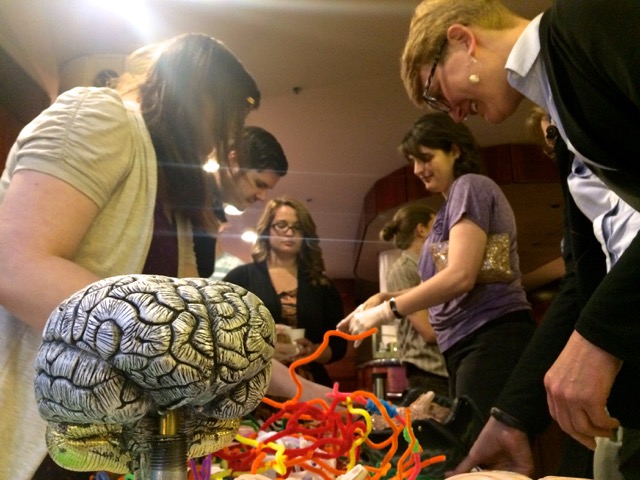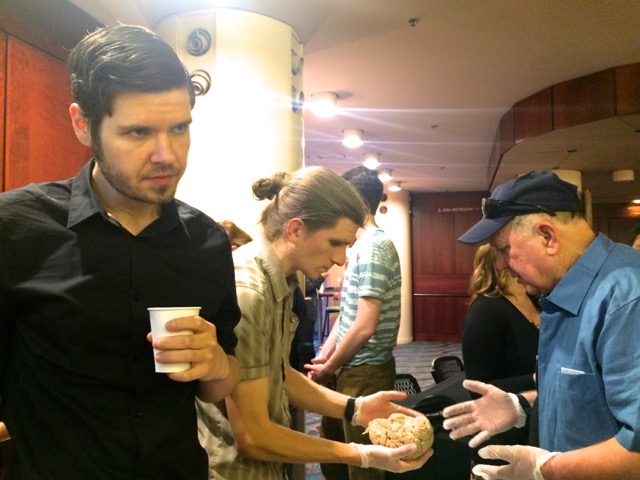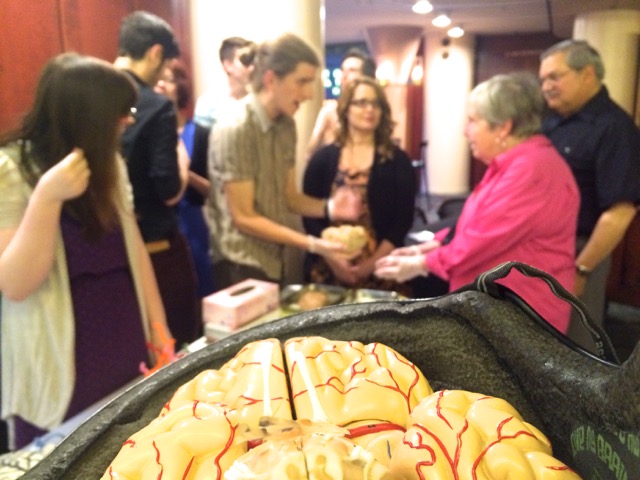We gathered quite a crowd of volunteers at the Newmark Theater in downtown Portland this week, to staff our outreach table, assist the OHSU Brain Institute in collecting surveys, and listen to a remarkable lecture by Robert Stern, an expert on brain injuries and sports at Boston University…
Dr. Stern was featured in a recent Frontline documentary called “League of Denial,” about the failure of NFL officials to address the serious, long term health consequences of repeated concussive and sub-concussive trauma experienced by professional football players…
Dr. Stern, an avowed Patriot’s fan – even a Tom Brady supporter! – made abundantly clear how well people have understood the cognitive risks of sports involving repetitive head injuries, and for a very long time. For example, he cited research on boxers from 1928 describing the “punch drunk” syndrome, also known as dementia pugilistica.
Dr. Stern pointed out how most people recover from mild concussions, particularly if they are allowed to get both physical and cognitive rest immediately following the event. However, a second hit soon after the first can sometimes provoke extreme brain inflammation, and even death. This Second Impact Syndrome is rare, but sometimes kills young athletes who return too quickly to play sports.
However, Dr. Stern is quite concerned about repetitive, sub-concussive trauma, likening the focus on concussions to the tip of a much larger iceberg. He and his colleagues have studied NFL football players for years, documenting the dramatic accumulation of neurofibrillary tangles, composed of misfolded tau proteins, around blood vessels and in the cortical valleys known as sulci in the brain…
Neurofibrillary tangles are a structural feature of Alzheimer’s dementia (AD); however, this newly identified disorder, now known as Chronic Traumatic Encephalopathy, or CTE, does not involve the development of beta amyloid plaques, which are also characteristic of AD.
However, CTE does result in significant memory loss, a quickness to anger (a “short fuse”), depression, and sometimes suicide. CTE has now been documented in professional football players, along with ice hockey players, rugby players, and soccer players…
Recent work by Dr. Stern and his colleagues, including lead author Julie Stamm, has found that NFL veterans who started playing football before twelve years of age were at a significantly increased risk of developing cognitive impairment later in life than those who started player later…
This was a powerful, affecting, thought-provoking, and also very funny and informative presentation by Dr. Stern. Afterwards, we returned to our NW Noggin table, and introduced audience members to the wonder and fragility of some real human brains…
Thanks once again to Bobby Heagerty, Kate Stout and Laura Graham of the OHSU Brain Institute for welcoming us as a partner in a compelling series of public lectures this spring…




